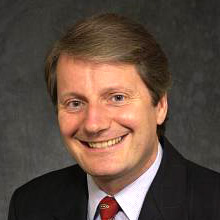Medicare Advantage is one area of U.S. healthcare policy that’s not a complete disaster. It’s not surprising that the Obama administration revealed in September that enrollment in the program is at an all-time high.
Medicare Advantage enables older Americans to choose a health plan from an array of private insurers. If not for this option, nearly 16 million people would be stuck in the traditional Medicare Part A (physician) and Part B (hospital) plans, where the federal government determines how much to pay providers according to bureaucratic formulae.
Traditional Medicare is inefficient for many reasons, not the least of which is the arbitrary nature of the reimbursement rates that doctors receive for treating Medicare patients.
Harvard University economics professor William Hsiao laid the foundation for today’s payment system more than 20 years ago, by putting together teams that surveyed thousands of specialists and compared the average length of time, effort, and skill they said it took to perform every task imaginable. Hsiao’s team concluded, for example, that a hysterectomy for a cervical cancer patient took about twice as long to perform as a 45-minute psychotherapy session for someone suffering from anxiety, and required 4.47 times as much physical effort and technical skill as it took to treat the mental-health patient. Such comparisons were used to create a “relative value scale” that determines how much money doctors and hospitals receive for treating patients in traditional Medicare.
The endeavor was a brazen exercise in central planning—sort of like Gosplan, the old Soviet economic pricing and planning mechanism—and it has led to serious mispricing and misallocation of medical services.
To escape the folly, one-third of Medicare beneficiaries now choose Medicare Advantage plans. Obamacare was supposed to squeeze those seniors out of their plans in order to finance the president’s healthcare law. However, when the time came, the Obama administration balked.
Although free of government price fixing, Medicare Advantage is not strictly a “voucher” program. Instead, private plans win the opportunity to participate by bidding annually. The government takes the lower bids. For two years now, the Department of Health and Human Services has announced significant cuts to the bids it will accept in a preliminary announcement in February. However, when it makes the final announcement in April, it largely restores the cuts.
The political blowback President Obama would suffer from cutting Medicare Advantage too much would be significant. Medicare Advantage (MA) plans are popular for many reasons. Most importantly, they provide better care than traditional Medicare (TM).
Health economists Joseph Newhouse and Thomas McGuire reviewed the evidence in the prestigious Milbank Quarterly in June of this year. Their conclusion: “On average, MA plans appear to offer higher value than TM, and positive spillovers from MA into TM imply that reimbursement should not necessarily be neutral. Policy changes in Medicare that reform the way that beneficiaries are charged for MA plan membership are warranted to move more beneficiaries into MA.”
Yet Medicare Advantage has prominent critics. What grates them is an estimate, widely accepted in health-policy circles, that plans in the program get paid 6 percent more per enrollee than the beneficiaries would cost if they were in traditional Medicare.
Is this (suspiciously precise) estimate of 6 percent too generous? Perhaps. Some research indicates that less than half the value of the higher payments is passed through to Medicare beneficiaries. Most of it is captured by insurers. This is not surprising: Because taxpayers are funding the benefit, beneficiaries are not motivated to demand as much value as is being paid for.
Plus, as with any government program, fraud is a problem. Fred Shulte of the Center for Public Integrity has concluded that some Medicare Advantage plans overbilled $70 billion in seven years, which they achieved by “upcoding”—reporting to the government that their beneficiaries were sicker than they actually were.
But fraud and overcharging are also rampant in traditional Medicare, amounting to an estimated $60 billion per year, of which only $4.3 billion is recovered. Medicare Advantage fraud, however, is often ambiguous. For example, some plans are eager to send physicians on house calls to patients, hoping to diagnose a condition for which they can overcharge Medicare. The typical government response, of course, would be to forbid Medicare Advantage plans from covering house calls.
There is a better way to improve Medicare Advantage to ensure payments are responsible, and to reduce fraud: Give patients more control of the money spent on them. Currently, one hundred percent of Medicare Advantage payments are given to insurers, not patients. Consequently, it is impossible to motivate beneficiaries to ensure the money is well spent. As a modest first step, Medicare should give some Medicare Advantage subsidies to seniors directly, through health savings accounts, instead of handing the taxpayers’ entire contribution to insurance companies.







